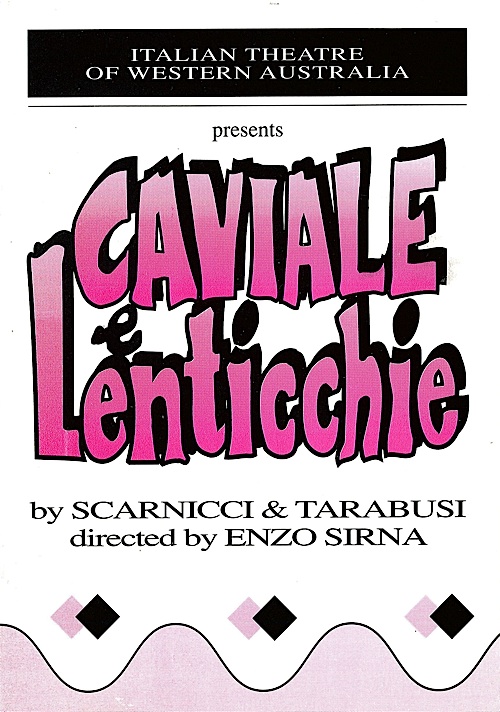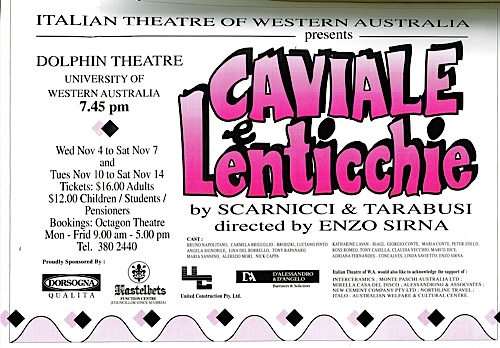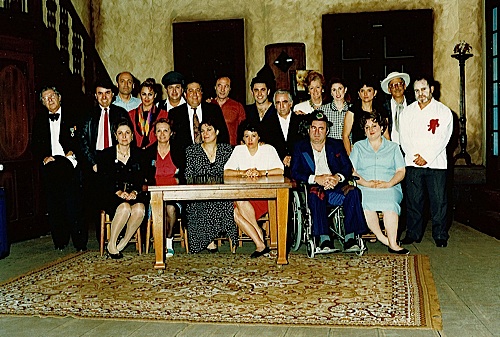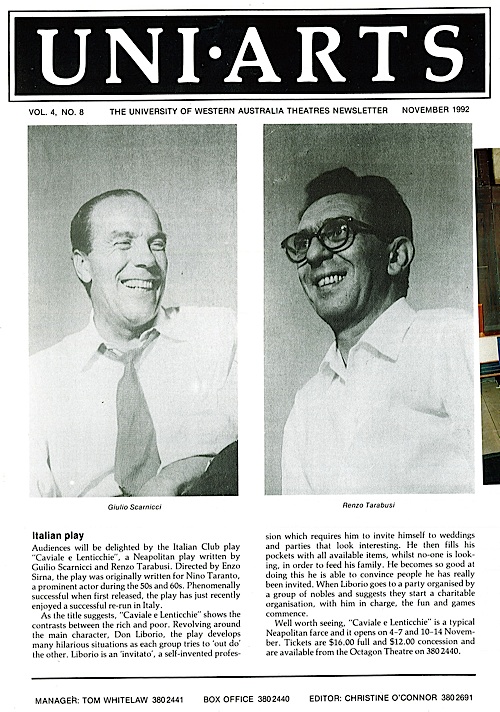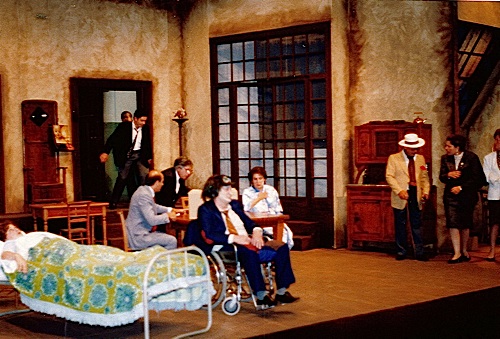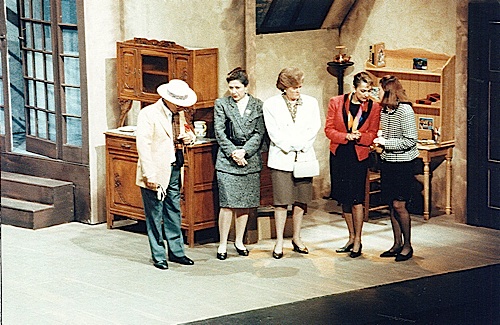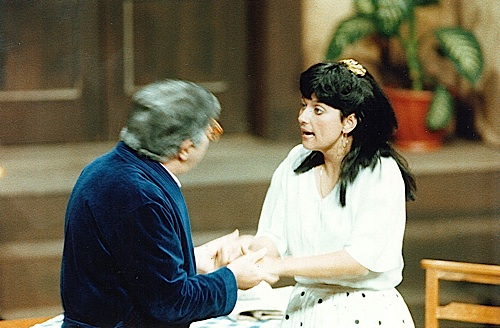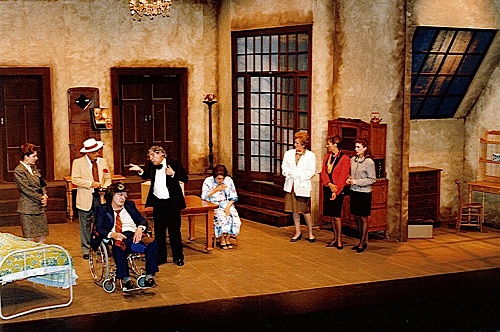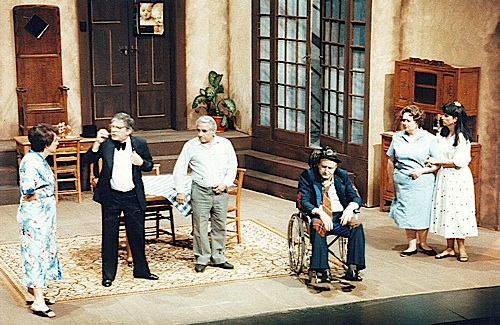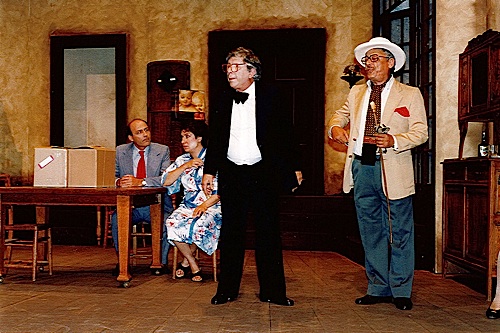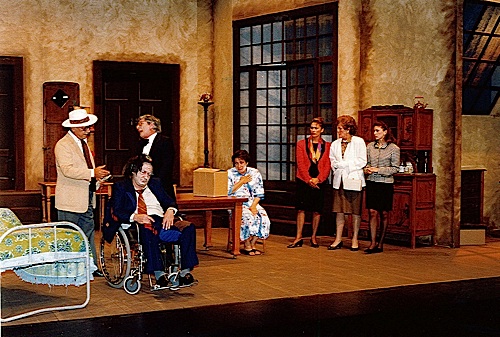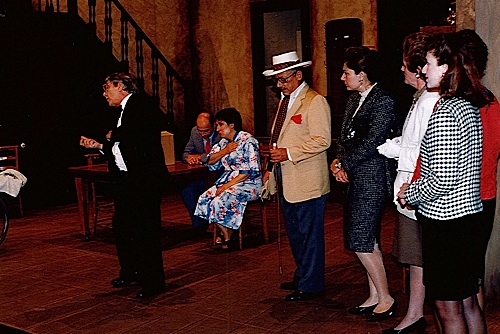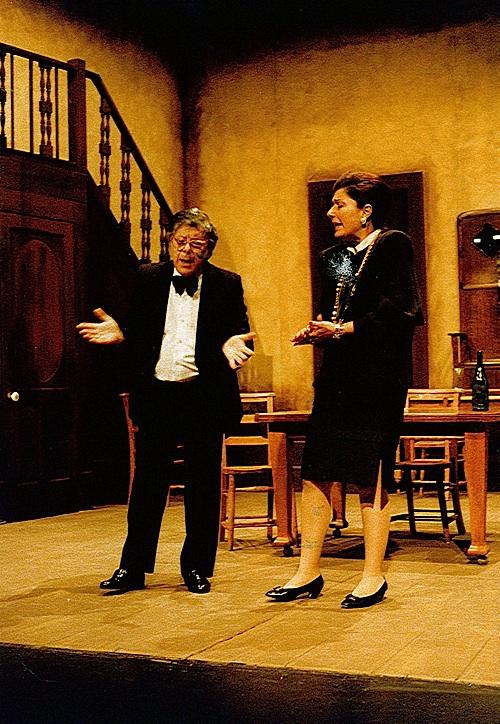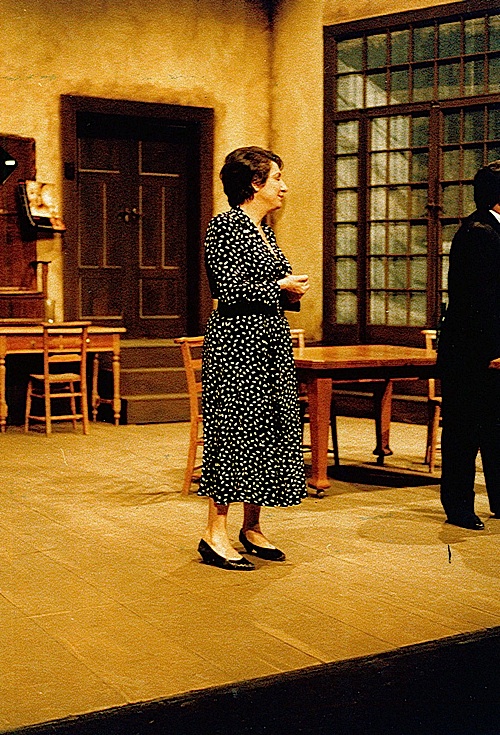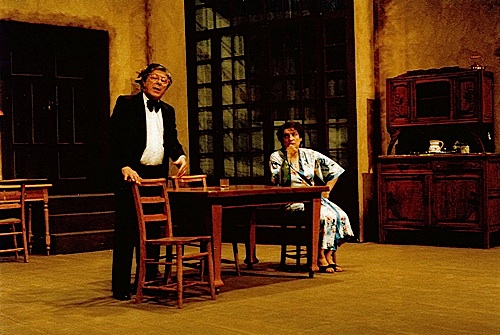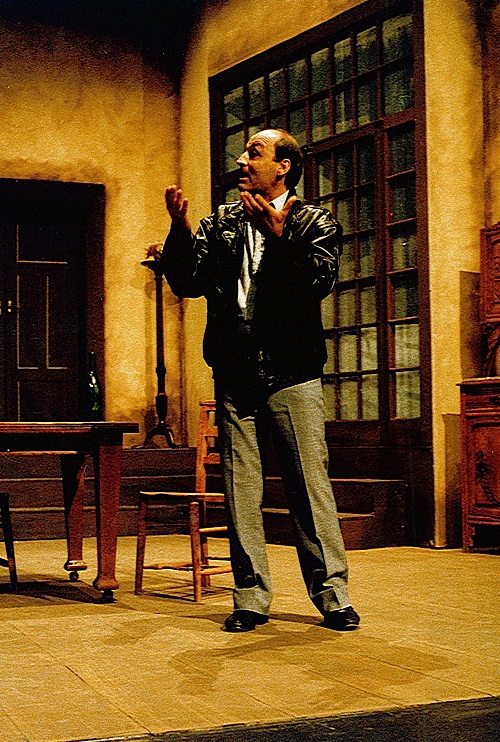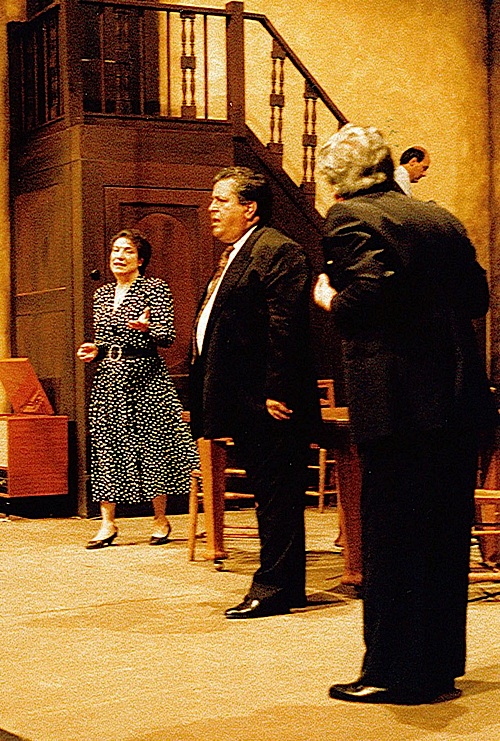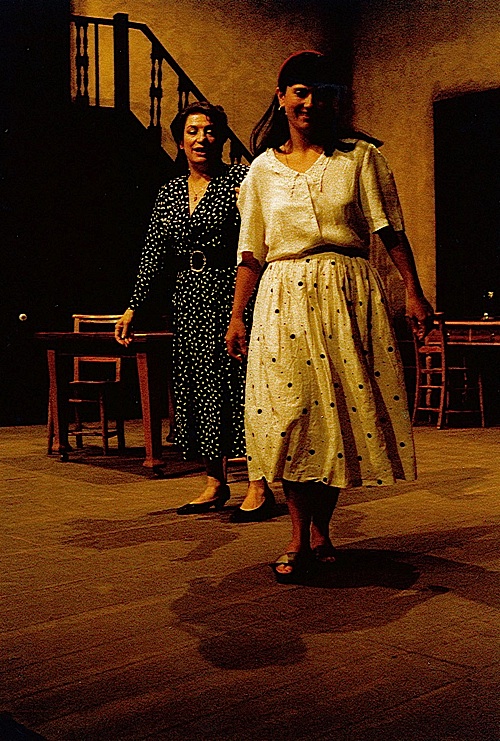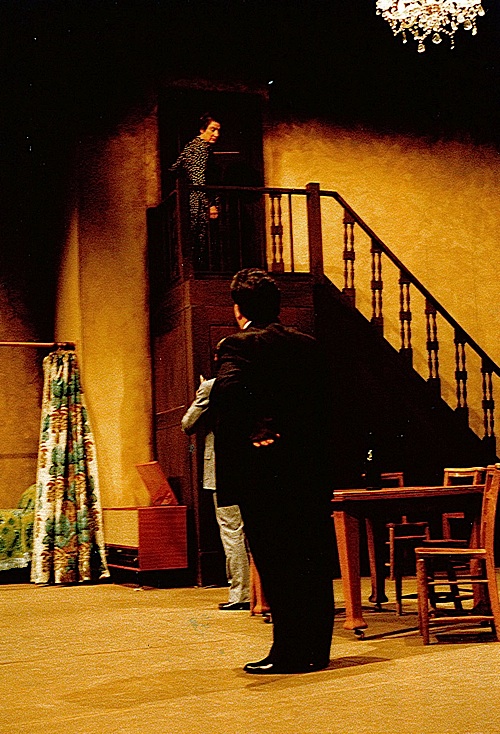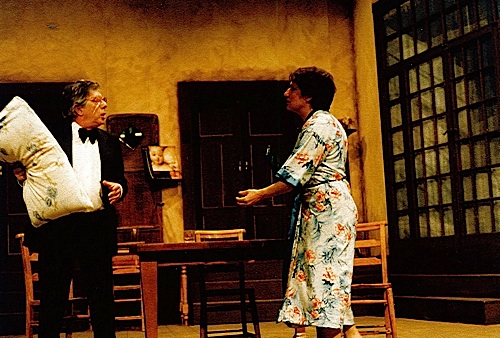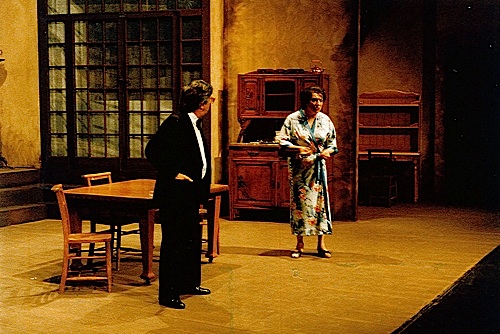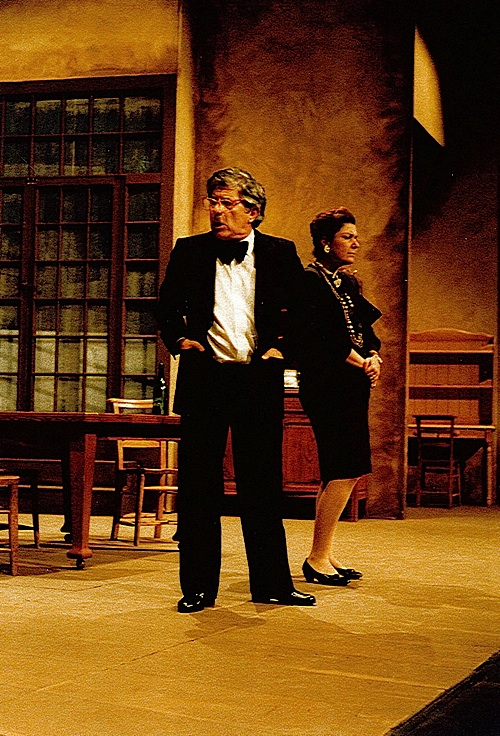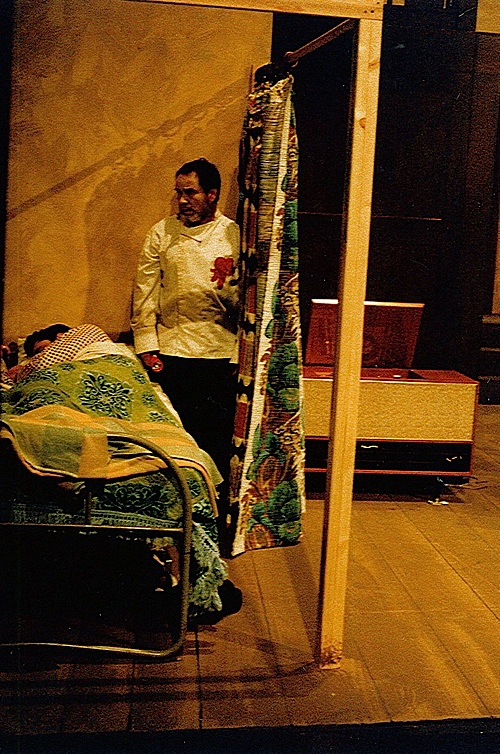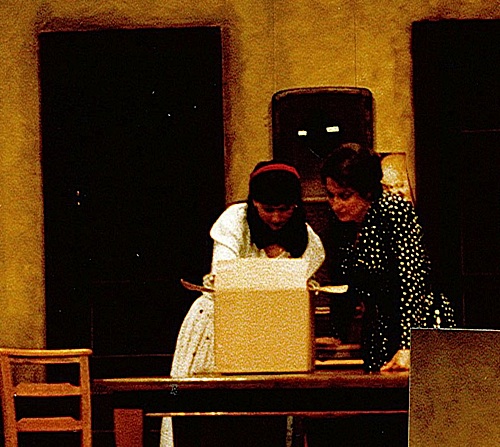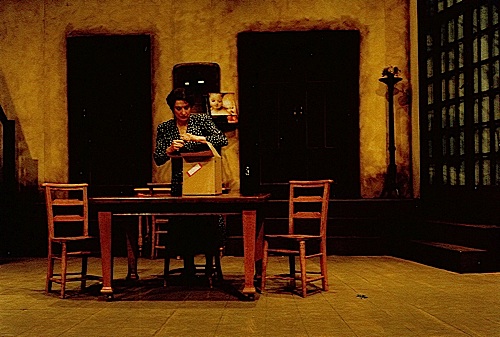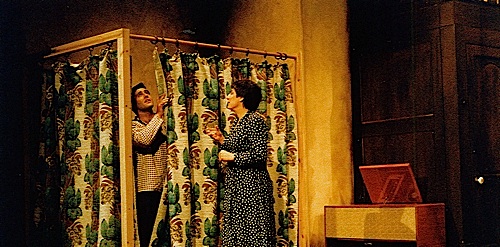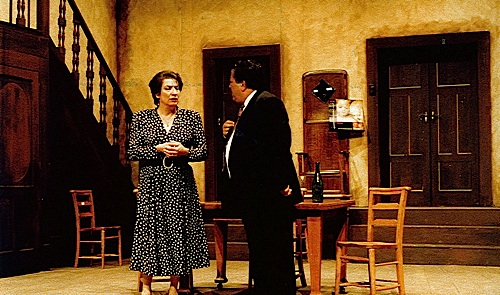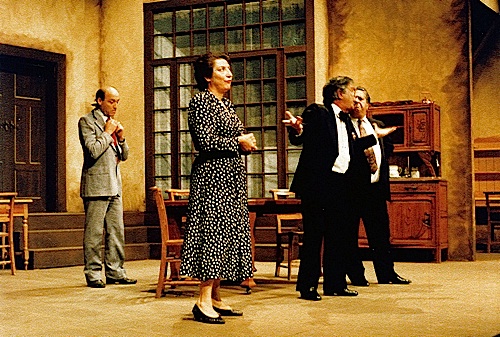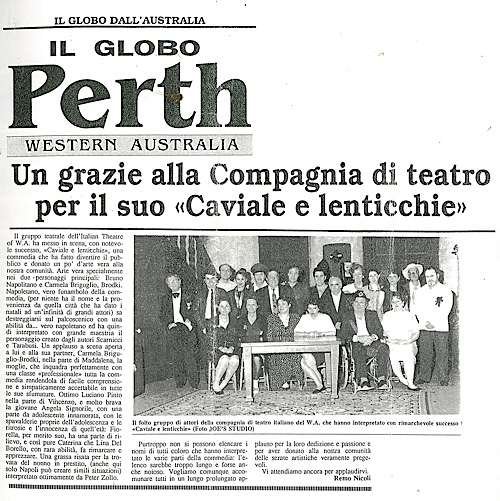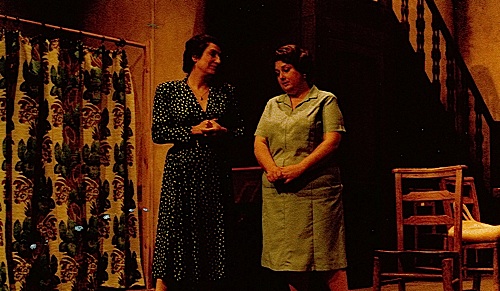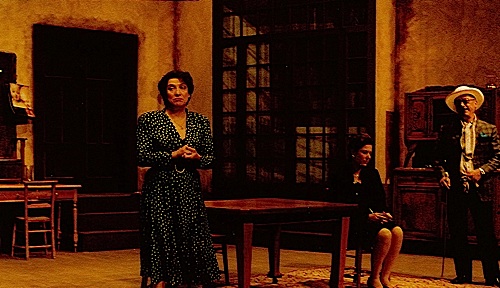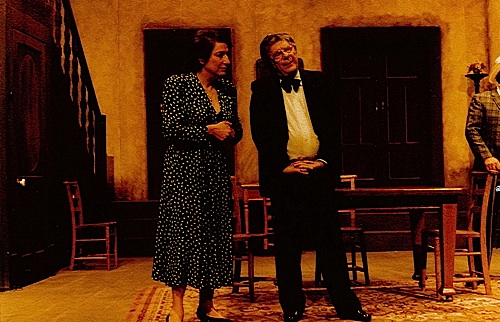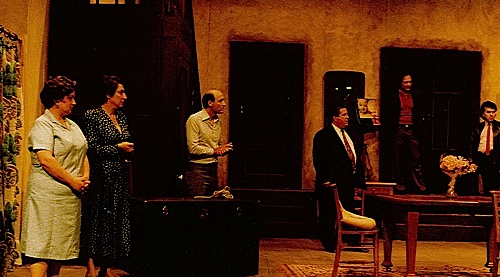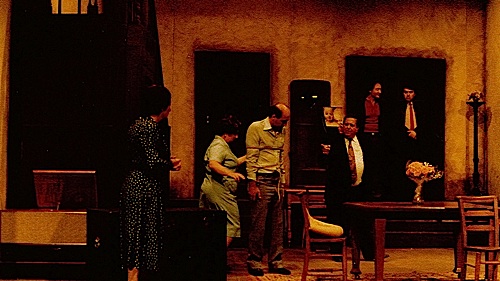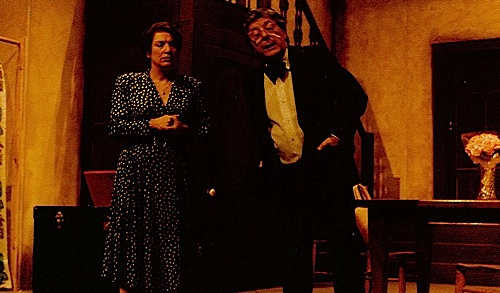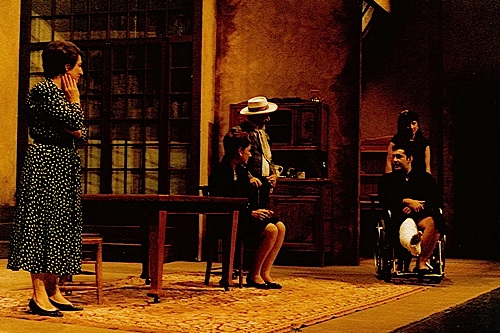Caviale e lenticchie (1992)
Directed by Enzo Sirna
Cast
Don Liborio……….Bruno Napolitano
Maddalena……….Carmela Briguglio-Brodzki
Vincenzo……….Luciano Pinto
Fiorella……….Angela Signorile
Caterina……….Lina Del Borrello
Leopoldo……….Tony Rapanaro
Donna Agnese……….Maria Sannino
Roberto……….Alfredo Mori
Piluscio……….Nick Cappa
Barone……….Giorgio Conte
Contessa……….Katharine Levan-Biagi
Contessina……….Linda Savietto
Milena……….Adriana Fernandes Goncalves
Nonno Simeone……….Peter Zollo
Carmela……….Maria Conte
Marcello……….Ross Romeo
Alessio……….Tony Casella
Pasquale……….Marco Dice
Assunta……….Claudia Vecchio
Filippo……….Enzo Sirna
A cheering and exhilarating plot is the main distinguishing feature of this play, much along the lines of the old so-called improvised comedy in the Italian style ai??i?? the ai???Commedia dellai???Arteai??? ai??i?? which was having a revival in Italy in the late 1940s and early 1950s through Giorgio Strehlerai??i??s work at the Piccolo Teatro di Milano. Typical of this ai???improvisedai??? genre, Caviale e lenticche has not been published, but is only to be found as a script thus affording various performers the potential for adaptation and improvisation as required by circumstances, and such has been the case with this current production.
Humour in a light vein was the trademark of Giulio Scarnicci and Renzo Tarabusi, and this is evident throughout this play which maintains a precise sense of decorum in spite of the double sense sometimes intended by some of the characters. This kind of humour elicits a spontaneous response from the public because it is never vulgar, in spite of twists and complications which may arise in the situations confronting the characters on stage.
Most of the stock comic these of economic need, love, rivalry and intrigue, as well as a tendency to chastise common human foibles such as greed, ambition, pomp and hypocrisy, are the ingredients which have sustained the genre of comedy over the centuries, and Caviale e lenticchie is no exception. All of these things are brought together to form a gentle social satire in this play although its most conspicuous aspects are undoubtedly the impeccable sense of timing with which an attempted swindle, of a rather harmless though comical kind, is itself overtaken by a more sinister fraud which add complications of a grotesque kind to an already twisted plot. The complications and misunderstandings bought by this attempted fraud give the play a new momentum which gradually gathers pace until it reaches a dizzying speed a t the end of the second act. The acrobatics of Don Liborio and his ai???collaboratorsai??? , as they desperately try to weave their way through the tangled web they have woven around themselves, without giving themselves away of course, are the classic ai???stage businessai??? routines of the kind normally associated with comedy and farce. There is much confusion, which in turn gives rise to suspicions doubts and ambiguities, all of which, together with the many excellent ai???one-linersai??? in the expertly crafted quick exchanges between characters, combine to perfection to make this a very entertaining and irresistibly funny play.
